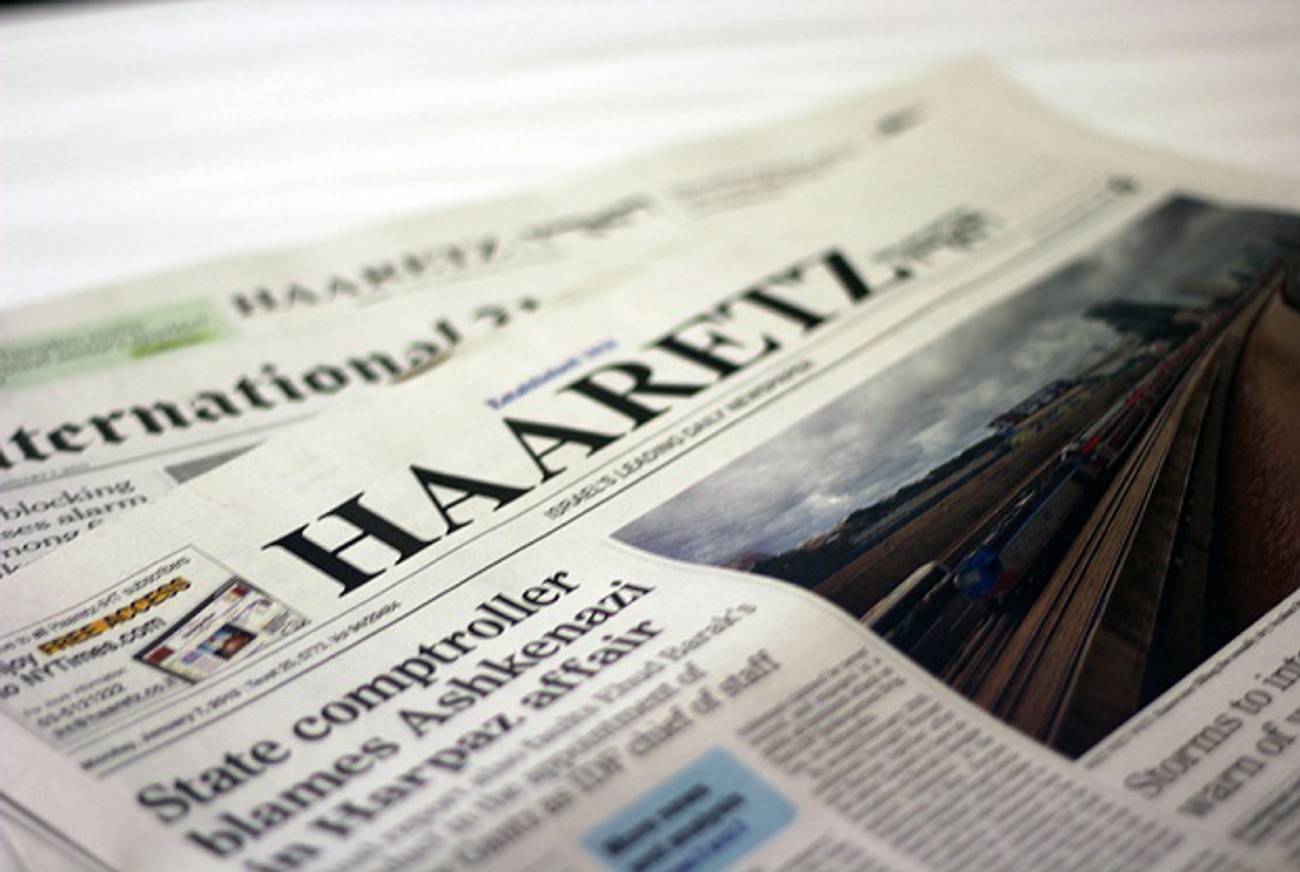Haaretz Editor Stands By Gaza Coverage
Aluf Benn reflects on this summer’s war and its impact on the Israeli public




Israelis have few qualms about this summer’s Gaza war, which killed more than 2,100 Palestinians and 70 Israelis, according to Haaretz editor-in-chief Aluf Benn. It’s not like the 2006 Lebanon war where the public questioned Israeli actions. Instead, their focus has shifted to a budget war with Prime Minister Benjamin Netanyahu. And internationally, ISIS has taken the spotlight.
“There was no discernible effect on Netanyahu’s popularity or his public stance,” Benn said last week after a panel discussion at the CUNY Graduate School of Journalism in New York. “There’s still no challenger who would run against Netanyahu or is seen as a possible successor.”
In fact, the man regarded as Netanyahu’s biggest political threat, Likud minister Gideon Sa’ar, resigned last week.
The 50-day war in Gaza presented a distinct challenge for Israeli media outlets, who had to keep up with the 24-hour news cycle while navigating the government’s controversial use of gag orders on sensitive stories. Most notably, the Israeli government quickly knew that kidnapped teens Naftali Fraenkel, Gilad Shaer, and Eyal Yifrach were likely dead based on DNA evidence discovered in the Hyundai the boys had been abducted in, but officials issued a gag order, preventing media from reporting the information.
Benn is proud of his paper’s coverage of the conflict. Haaretz, Israel’s leading liberal paper, tried to work around the censorship by alluding to doubts on the government line—and was the only major outlet to do so, Benn said.
“We were the only ones that wrote a major headline that there is a growing concern for the lives of the three teenagers,” he said. “And that was as close as we could get to telling the truth.”
Meanwhile, the paper faced backlash—not from the government, but from the Israeli public–for a front-page headline on the number of Palestinian casualties and for a Gideon Levy column that criticized Israel’s air force after an attack that killed civilians. Thousands of readers cancelled their subscriptions.
“The readers didn’t want to read that kind of stuff. They were angry,” Benn said. “No one wanted to raise concerns about the loss of lives of civilians.”
Haaretz may have lost some readers, but Benn isn’t concerned. More young Israelis have been subscribing, he said, and English readers flocked to the newspaper’s website over the summer. That could have been partly due to the live blog that offered round-the-clock updates on the conflict.
Toeing the government line may have brought Haaretz new Israeli readers, but not without an existential threat.
“If we did not stand by the principles that led Haaretz for a century, that would have led to a problem for the paper,” Benn said.
Rachael Levy is a freelance journalist currently based in New York. Follow her on Twitter at @rachael_levy.
Rachael Levy is a freelance journalist currently based in New York. Follow her on Twitter at @rachael_levy.